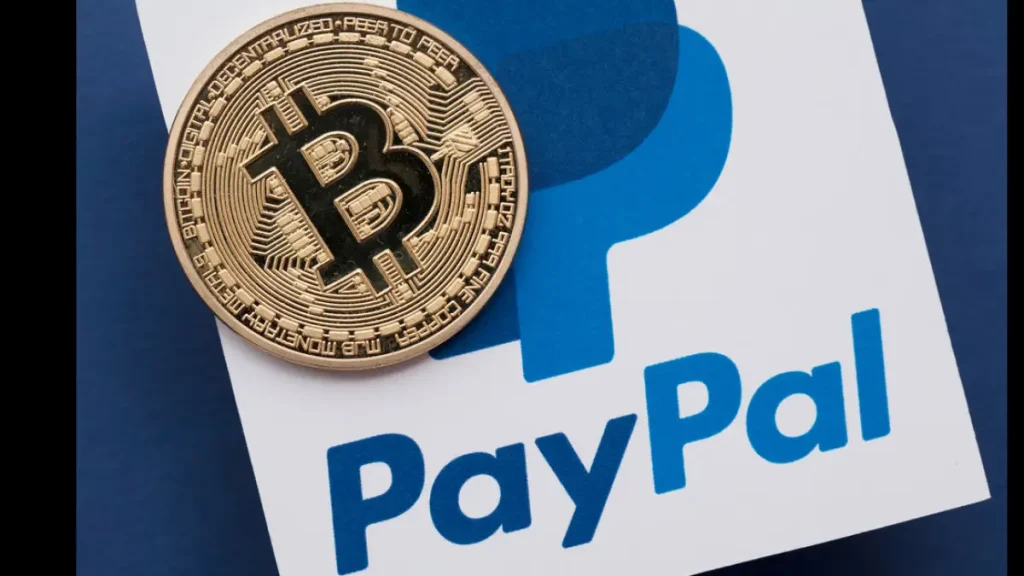Online Payment Opportunities: A Comparative Analysis of PayPal and Bitcoin
In today’s digital age, online payment systems have revolutionized the way we conduct financial transactions. Among the numerous options available, two prominent players have emerged: PayPal and Bitcoin.
This article aims to provide an in-depth analysis of these online payment opportunities, shedding light on their features, benefits, and differences.
By understanding the strengths and weaknesses of PayPal and Bitcoin, users can make informed decisions when it comes to their online transactions.
Heading 1: PayPal – Empowering Secure and Convenient Online Payments
Heading 2: Exploring the Features of PayPal
Heading 3: The Advantages of Using PayPal
Heading 4: PayPal’s User-Friendly Interface
Heading 5: Bitcoin – Decentralized Digital Currency
Heading 6: Understanding the Concept of Bitcoin
Heading 7: Key Features of Bitcoin
Heading 8: The Benefits of Bitcoin
Heading 9: The Security Aspect of Bitcoin
Heading 10: A Comparative Analysis: PayPal vs. Bitcoin
Heading 11: PayPal vs. Bitcoin: Transaction Speed and Fees
Heading 12: PayPal vs. Bitcoin: Accessibility and User Base
Heading 13: PayPal vs. Bitcoin: Security and Privacy
Heading 14: Conclusion: Making Informed Choices
PayPal – Empowering Secure and Convenient Online Payments
First and foremost, PayPal stands out as one of the most widely recognized and trusted online payment systems globally. Additionally, PayPal has been an industry leader for years, offering users a secure and convenient way to send and receive money online. Furthermore, it boasts an extensive network of merchants, making it widely accepted across various e-commerce platforms.
Exploring the Features of PayPal
Firstly, PayPal allows users to link their bank accounts, credit cards, or debit cards to their PayPal account, making it easy to transfer funds. In addition, it provides a user-friendly interface that simplifies the payment process, ensuring a smooth and hassle-free experience. Moreover, PayPal offers a buyer protection program, safeguarding users against fraudulent transactions or unauthorized purchases.
The Advantages of Using PayPal
Not only that, PayPal enables users to make online payments without revealing their financial information to sellers. Furthermore, it offers a quick and efficient way to split bills among friends or family members, making group payments a breeze. Moreover, PayPal’s mobile app provides users with the flexibility to make payments on the go, enhancing convenience and accessibility.
PayPal’s User-Friendly Interface
In addition, PayPal’s intuitive interface allows users to monitor their transactions, view payment history, and manage their account settings effortlessly. Additionally, it offers a streamlined checkout process on e-commerce websites, reducing the time and effort required to complete a purchase. Moreover, PayPal integrates smoothly with various popular e-commerce platforms, making it a preferred choice for merchants and customers alike.
Bitcoin – Decentralized Digital Currency
On the other hand, Bitcoin represents a revolutionary digital currency that operates on a decentralized network. Moreover, it stands out from traditional payment methods due to its unique characteristics. Furthermore, Bitcoin transactions occur directly between users without the need for intermediaries such as banks or financial institutions.
Understanding the Concept of Bitcoin
To begin with, Bitcoin operates on a technology known as blockchain, which ensures transparency and immutability of transactions. Furthermore, it is not controlled or regulated by any central authority, making it a decentralized currency. Additionally, Bitcoin transactions are recorded on a public ledger, enhancing transparency and security.
Key Features of Bitcoin
Moreover, Bitcoin offers features that differentiate it from traditional payment systems. Additionally, it allows users to remain pseudonymous, providing a certain level of privacy. Furthermore, Bitcoin transactions are irreversible, providing protection against fraudulent chargebacks.
The Benefits of Bitcoin
Furthermore, Bitcoin offers several advantages for users. Additionally, it facilitates fast and low-cost international transactions, eliminating the need for intermediaries such as banks and reducing associated fees. Moreover, Bitcoin’s borderless nature allows individuals in countries with limited banking infrastructure to participate in global transactions.
The Security Aspect of Bitcoin
Furthermore, Bitcoin’s decentralized nature enhances security. Additionally, it utilizes cryptographic algorithms to secure transactions and control the creation of new units. Moreover, Bitcoin’s security is bolstered by the vast network of computers, or “nodes,” that validate and verify transactions.
A Comparative Analysis: PayPal vs. Bitcoin
On the contrary, PayPal and Bitcoin differ significantly in various aspects. Furthermore, it is essential to compare these two platforms to make an informed decision based on individual requirements and preferences. Additionally, understanding the differences can help users determine which option aligns better with their specific needs.
PayPal vs. Bitcoin: Transaction Speed and Fees
Moreover, PayPal offers instant transactions, ensuring swift transfers. Furthermore, it provides users with the option to expedite payments by utilizing its “Instant Transfer” feature. Additionally, PayPal charges fees for certain transactions, such as currency conversions or international transfers. In contrast, Bitcoin transactions can take longer due to network confirmations. Moreover, Bitcoin transaction fees vary based on network demand and transaction size.
PayPal vs. Bitcoin: Accessibility and User Base
Additionally, PayPal boasts a massive user base, making it widely accepted across various e-commerce platforms. Moreover, it offers support for multiple currencies, facilitating international transactions. On the other hand, Bitcoin adoption is still growing, and its acceptance varies among merchants. Furthermore, Bitcoin users need a digital wallet to send and receive payments, which may require a learning curve for some individuals.
PayPal vs. Bitcoin: Security and Privacy
Furthermore, PayPal provides users with buyer protection and fraud prevention measures, adding an extra layer of security. Additionally, it offers two-factor authentication and encryption to safeguard user accounts. On the other hand, Bitcoin’s security relies on users’ ability to protect their digital wallets and private keys. Moreover, Bitcoin transactions are pseudonymous, providing a certain level of privacy.
Conclusion: Making Informed Choices
In conclusion, both PayPal and Bitcoin offer unique opportunities for online payments. Moreover, PayPal excels in providing secure and convenient transactions, with a vast user base and extensive merchant network. Furthermore, Bitcoin introduces a decentralized digital currency with the potential for fast, low-cost international transactions. Moreover, understanding the strengths and weaknesses of PayPal and Bitcoin is crucial in making informed decisions that align with individual preferences and requirements.

